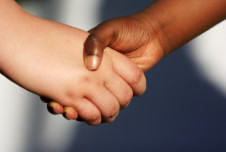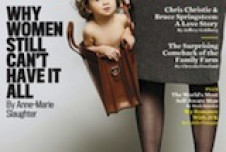Forgiveness heals.
Scientists, religious leaders, and poets all seem to agree on this. Forgiving others can make us happier, healthier, kinder, and more connected. When we’re no longer obsessed with avoiding and getting revenge on someone, we can move on with our lives.

But a new study out of the University of Missouri suggests that, for some men, forgiveness can backfire—and these men are actually more depressed than men who are less forgiving. In other words, the healing powers of forgiveness may be more constrained, or harder to activate, than we previously thought.
The study examined more than 1,000 US adults over 67 years old, most of whom were Christian. The survey asked about their mental health, forgiveness habits, and feelings of being unforgiven by others.
According to previous research, people who have wronged others in the past but haven’t received forgiveness tend to feel more depressed, and this study’s participants were no exception. But could forgiveness heal them, too?
Men and women who feel unforgiven may have strained relationships (or no relationship) with the people they hurt, and they may experience guilt or shame. Reaching out from that place of suffering to forgive others could build up positive connections and give them a sense of strength and worth. Forgiving themselves—a different form of forgiveness where self-resentment is replaced with compassion and love—could at least provide some peace if forgiveness from others is not forthcoming.
And this seemed to be true—for women. Unforgiven women in the study who had a habit of forgiving others, or forgiving themselves, were less depressed than women who didn’t. The women who routinely forgave others fared the best; feeling unforgiven didn’t seem to affect their depression levels at all.
Unforgiven men who were self-forgiving also suffered from less depression than their more self-resenting peers. But forgiving others didn’t have the same link—in fact, unforgiven men who routinely forgave others were more depressed than those who withheld forgiveness. Could forgiving others hurt men’s mental health?
This unexpected finding might come down to our cultural views about forgiveness and masculinity, the authors believe. “Forgiveness may be viewed as a more traditionally feminine behavior to some men and therefore forgiving may not align with a more traditional masculine gender role,” says study coauthor Ashley E. Ermer.
In other words, forgiveness may make some men feel vulnerable and weak. For some, perhaps forgiveness is spurred by the recognition of their own past mistakes, which are never pleasant to contemplate. Or perhaps they feel a sense of injustice because they are so generously forgiving while others are not. Whatever the explanation, the fact that forgiveness can backfire for some men might help explain why men are less forgiving in general.
Does this mean that unforgiven men shouldn’t try to practice forgiveness, and that all those injunctions to forgive need a huge caveat for gender? Not necessarily, says Ermer. The takeaway should be that the process of forgiveness isn’t fully understood, and we need to do more research on how it works for men and women.
For example, if the difficulty really lies in cultural attitudes about forgiveness and masculinity, men might have to do some extra work when practicing forgiveness. A forgiveness program for guys might include contemplating examples of powerful, forgiving men, or reflecting on how forgiveness is actually a form of strength. In the meantime, both men and women who are suffering from an unforgiven wrong they committed may benefit from forgiving themselves.






Comments